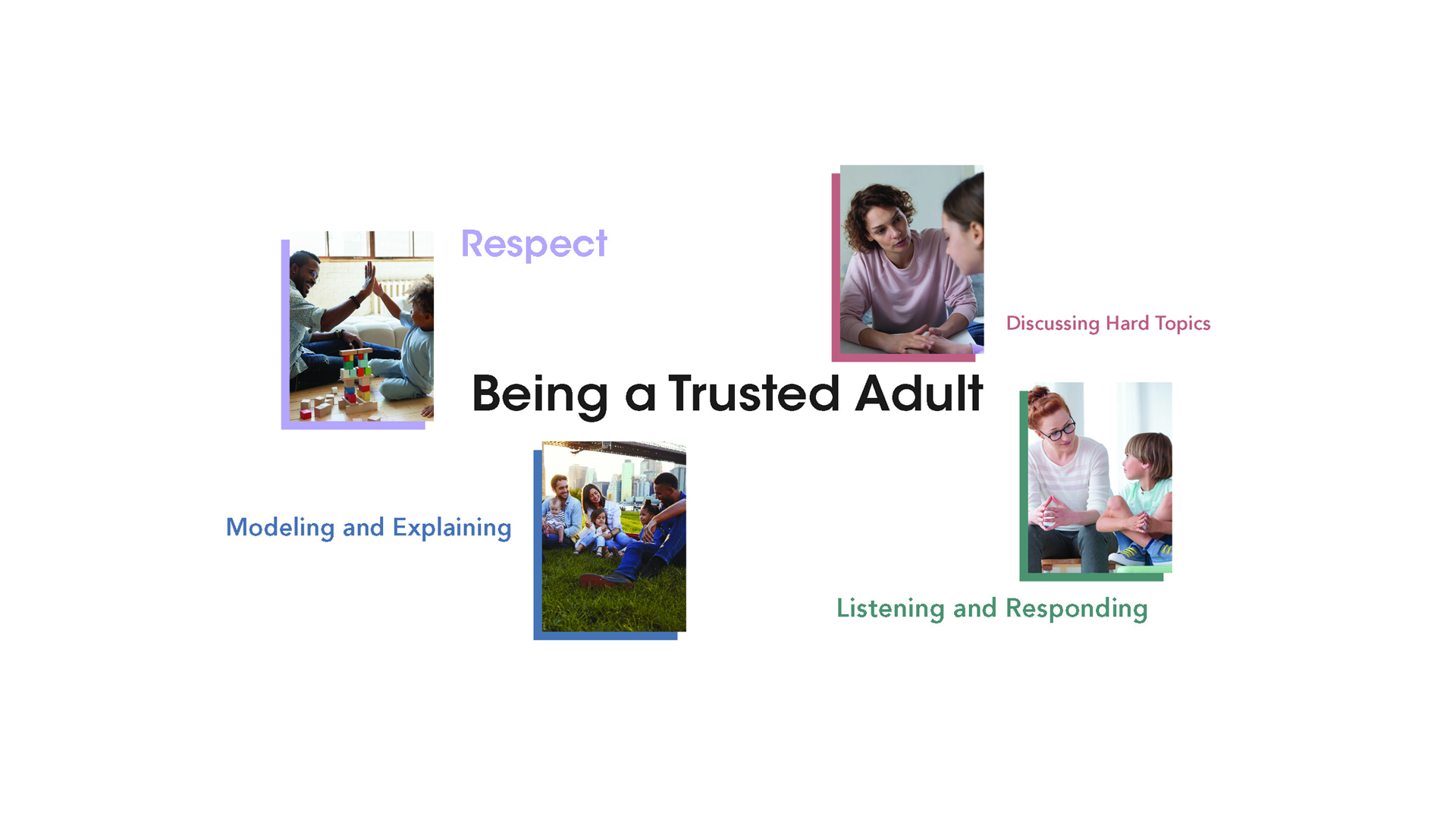Being a Trusted Adult
UNCOMFORTABLE FACT: Children are much more likely to be abducted or abused by someone they know.
This reality can make it hard for children to understand what types of adult behaviors are inappropriate or dangerous. This is compounded when the abuser claims to love the child or is an authority the child has been told to respect. BUT YOU CAN HELP! As a trusted adult, there are things you can do to demonstrate to children that you are a safe adult.
Respect children’s bodies and boundaries
Trusted adults empower children to assert their boundaries and have control of their own bodies from a young age. This means talking about consent early. Children should understand that they can assert their own boundaries and that in turn they need to respect the boundaries of others. For example:
Practice Boundaries
» “Can I give you a hug?” “I don’t really feel like a hug. How about a high five?”
» “Little brother, it doesn’t look like your sister wants tickles right now- look at how she’s frowning and looking down. Let’s respect her space.”
» “I noticed that you seemed uncomfortable when your coach gave you a hug today. Do you want to talk about it? It’s OK to tell him you would prefer a high five.”
Listen and respond to children’s concerns
When children approach you with safety concerns, it is important to take them seriously, even if they are seemingly small issues. By listening closely and treating the issue thoughtfully you help build confidence in children that they can trust you to help them when in trouble. This also helps empower them to be diligent about their own safety. Role playing can be helpful for children to help them practice being assertive about their boundaries.
Practice Listening and Responding
“Mr. Jones, a girl on the playground grabbed my shirt and stretched it out.” “I’m sorry that happened. Are you OK? Try talking to the girl; let her know what she did and how it affected you. If it happens again, let me know and we will work it out together.”
Be an informed resource
It’s normal for children to use the internet to look for information about sex, development, and relationships. However, they may not be finding the best or most appropriate information this way. Talking to children openly about healthy relationships and having age appropriate conversations about sexual development will help reduce the risk that they are exposed to unhealthy or unrealistic information online.
Practice Discussing Hard Topics
Abusers are emboldened by the taboo around talking to children about sex and sexual development. Get comfortable with the topics or terms that have made you uncomfortable in the past. Consider saying these words into a mirror, or rehearsing on your own something you want to later address with a child.
Model and explain to other adults
It can be hard to address the subject of child sexual abuse with family and friends, but avoiding these conversations is part of what allows it to continue. When practicing boundaries or listening and responding, be frank with the adults around you about why you are practicing these behaviors with the children in your life.
Practice Modeling and Explaining
“My partner and I are trying to help the kids set their own physical boundaries; we’re testing out handshakes versus hugs today. It’s hard sometimes, but it’s important to help keep them safe from abuse. Kids who have a good understanding of boundaries early on are better prepared to spot and report sexual abuse if it ever happened. We appreciate your support in this effort by not forcing the children to give a hug if they do not want to.”
It's not easy, but it's worth the practice! It's our shared responsibility to protect children!
Learn more about NCMEC's Prevention Education at MissingKids.org/Education.

